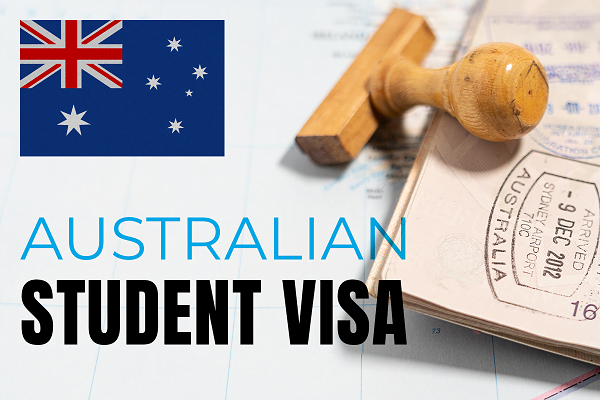Advertisements
Are you a skilled professional looking to pursue a high-paying career in Australia? This comprehensive guide lists the top 7 jobs that offer lucrative salaries and visa sponsorship opportunities in 2024. You’ll learn about each job’s qualifications and requirements, average earnings, and visa forms.
Advertisements
READ ALSO: Relocating to Australia via the Construction Visa Subsidy Program
Top 7 High Paying Jobs
Here are the top 7 high-paying jobs in Australia that offer visa sponsorship in 2024:
1. Surgeon
Surgeons are among the highest-paid professionals in Australia, earning an average annual salary of AUD 406,100.
They perform complex surgeries to treat injuries, diseases, and deformities. However, this career requires extensive education and training.
Education And Training Requirements:
- Medical Degree: Complete a Bachelor of Medical Studies/Doctor of Medicine (6 years) or Doctor of Medicine (4 years if you have a related degree).
- Internship: Work as an intern for 1 year.
- Residency: Work as a resident for 1-2 years before getting general registration.
- Surgical Training: Enter the Royal Australasian College of Surgeons’ SET program, which lasts 5-6 years and covers 9 specialties.
2. Anaesthetist
Anesthetists are highly skilled medical professionals who administer anesthesia and monitor patients during surgery.
In Australia, there is a high demand for anesthetists, making it a well-paid career with an average annual salary of about AUD 389,000.
Qualifications And Training Requirements:
- Medical Degree: Complete a Bachelor of Medical Studies/Doctor of Medicine (5-6 years) or a graduate entry medical degree (4 years).
- Internship: A one-year internship in a hospital is required to gain general medical experience.
- Residency: Complete at least two years of residency, which includes rotations in various medical specialties, such as anesthesia.
- Specialist Training: Apply for a fellowship program with the Australian and New Zealand College of Anaesthetists (ANZCA), which takes 5 years and includes, Introductory and Basic Training (2 years), Advanced Training (2 years), Provisional Fellowship Training (1 year).
Anesthetists can qualify for visa sponsorship in Australia, such as the Temporary Skill Shortage (TSS) visa (subclass 482) or the Skilled Independent visa (subclass 189).
And, to be eligible, candidates need a positive skills assessment from the Medical Board of Australia, confirming their qualifications and experience.
3. Internal Medicine Specialists
Internal Medicine Specialists are essential in Australia’s healthcare system, focusing on preventing, diagnosing, and treating adult diseases.
They handle tough cases involving multiple health issues, which makes their skills highly valuable. However, the average annual salary for an Internal Medicine Specialist in Australia is about AUD 305,000.
Entry-level positions start around AUD 100,000, while experienced specialists can earn up to AUD 500,000, especially in high-demand areas or private practices. Factors like location, type of employment (public or private), and experience seriously affect salary levels.
Advertisements
Qualifications And Requirements:
- Medical Degree: A Bachelor of Medicine and Bachelor of Surgery (MBBS) or equivalent.
- Internship: One year of supervised practice.
- Residency: At least three years in internal medicine.
- Fellowship: Required from a recognized college, like the Royal Australasian College of Physicians (RACP).
- Registration: Must register with the Medical Board of Australia; international graduates may need to pass the PLAB exam.
Australia offers visas like the Temporary Skill Shortage (TSS) and Employer Nomination Scheme (ENS) for skilled medical professionals.
Due to high demand, especially in rural areas, Internal Medicine Specialists often have good opportunities for visa sponsorship.
READ ALSO: Australian Marriage Visa
4. Mining Engineer
Mining engineers in Australia help extract minerals and resources. Australia has a lot of natural resources, so this job is crucial for the economy.
Mining engineers not only have a major role but also earn good salaries and often have opportunities for visa sponsorship.
The average salary for mining engineers in Australia is about AUD 145,000 per year. Starting salaries are around AUD 115,000.
With experience, mining engineers can earn more than AUD 185,000, and some can even make up to AUD 300,000 in top management roles.
However, Mining engineers can get visa sponsorship through programs like the Temporary Skill Shortage (TSS) visa or the Employer Nomination Scheme (ENS) visa. These visas help skilled workers move to Australia with employer sponsorship.
Qualifications And Requirements:
- Educational Background: A bachelor’s degree in mining engineering or related fields like civil or mechanical engineering is required. Postgraduate qualifications or certifications are often preferred.
- Experience: Experience in the mining sector is important. Entry-level positions are available for graduates, but most roles need several years of experience.
- Skills: Key skills include strong analytical and problem-solving abilities, knowledge of mining software, and good communication and teamwork skills.
5. Construction Manager
A Construction Manager in Australia is in high demand due to the growing construction industry. This job involves overseeing construction projects from start to finish, ensuring everything runs smoothly and on schedule.
Construction Managers earn good salaries, with an average annual income of around AUD 140,000. However, salaries can vary, from AUD 68,000 to AUD 197,000, depending on experience and location.
In major cities like Sydney and Melbourne, salaries are typically between AUD 130,000 and AUD 150,000. For those working in specialized areas like mining, earnings can exceed AUD 200,000.
Qualifications And Requirements:
- Education: A bachelor’s degree in construction management, civil engineering, or a related field is needed. A master’s degree is a plus.
- Experience: At least six years in the construction industry, including roles like site manager or project coordinator.
- Certifications: Certificates like Certificate IV in Building and Construction or Certified Practicing Project Director (CPPD) are beneficial.
- Skills: Essential skills include leadership, communication, problem-solving, and knowledge of safety regulations.
Australia offers visa options like the Temporary Skill Shortage (TSS) visa and the Skilled Independent visa for skilled workers, including Construction Managers.
READ ALSO: How to Obtain an Australian Student Visa
6. Information & Communications Technology (ICT) Manager
ICT managers are one of the top high-paying professions in Australia. They plan, coordinate, and oversee IT activities to ensure systems are running properly.
Requirements
- A bachelor’s degree in computer science, information technology, or a related field.
- Several years of IT experience, with a track record of managing projects and teams.
- Strong technical skills and knowledge of various IT systems and platforms.
- Excellent communication, leadership, and problem-solving abilities.
However, the average annual salary for an ICT manager in Australia is AUD 171,000. Entry-level positions start at around AUD 135,000, while senior-level managers can earn up to AUD 220,000.
Advertisements
Salaries vary based on organization size, industry, and experience. Australia offers visa sponsorship for skilled ICT managers.
Key visa options include:
- Temporary Skill Shortage (TSS) visa (subclass 482)
- Employer Nomination Scheme (ENS) visa (subclass 186): For permanent residence sponsorship.
- Global Talent visa
7. Supply Chain Director (Logistics)
A Supply Chain Director (Logistics) in Australia is a high-paying job, with an average annual salary of about AUD 165,000. Many Australian companies offer visa sponsorship for qualified Supply Chain Directors.
However, to get sponsored, you usually need a job offer from an employer willing to sponsor your visa application.
The Temporary Skill Shortage (TSS) visa (subclass 482) is a common option. Employers must show they tried to recruit locally before sponsoring an overseas candidate.
Qualifications And Requirements:
- A bachelor’s degree in supply chain management, logistics, business administration, or a similar field. A master’s degree or MBA can be helpful.
- Extensive experience in supply chain management, usually 8-10 years in higher-level roles.
- Strong analytical and problem-solving skills.
- Excellent leadership and communication skills.
Advertisements






